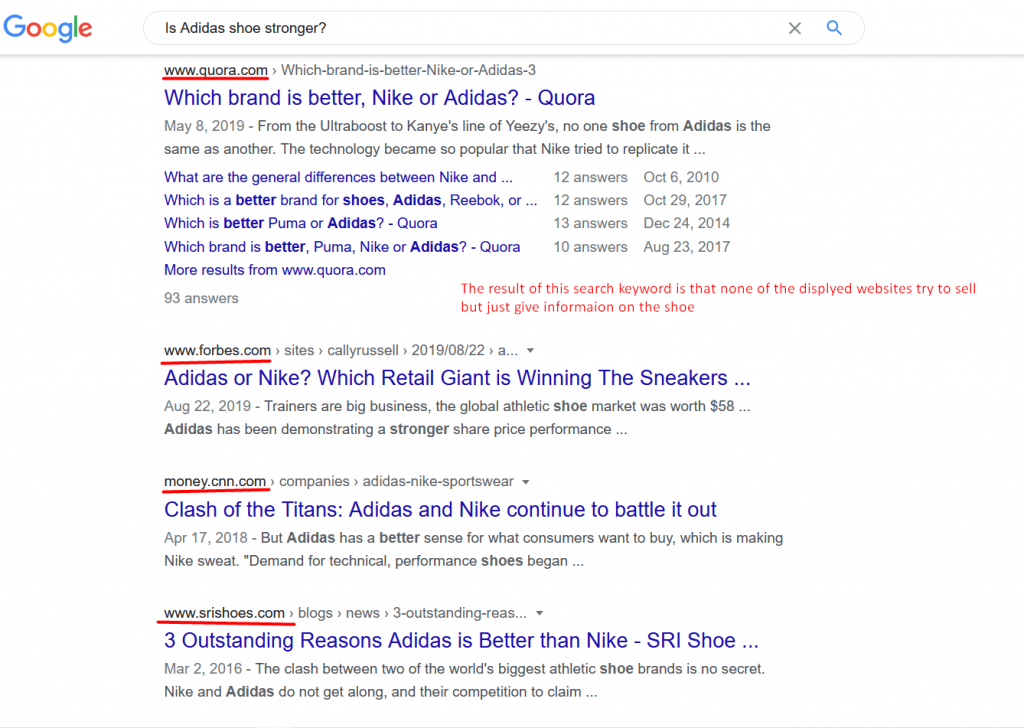When I first started, I had no idea about Keywords. The funniest thing was I didn’t understand what keywords meant by. I had many questions, like should the keywords be some particular words? What are their specialties? Who invents or decides whether any words are keywords are not? If you are a beginner reading this, you must have similar queries. Below I have tried solving your queries regarding many such questions that might come in your mind. You can freely comment below for any more questions or queries.
Let’s jump into the Keyword FAQs:
1. What are keywords?
People have been providing a complicated definition of keywords on the internet. I, too, couldn’t understand it at first. So, to simply tell you keywords are anything, literally anything you type of google search bar to get an answer. That’s simple as it is.
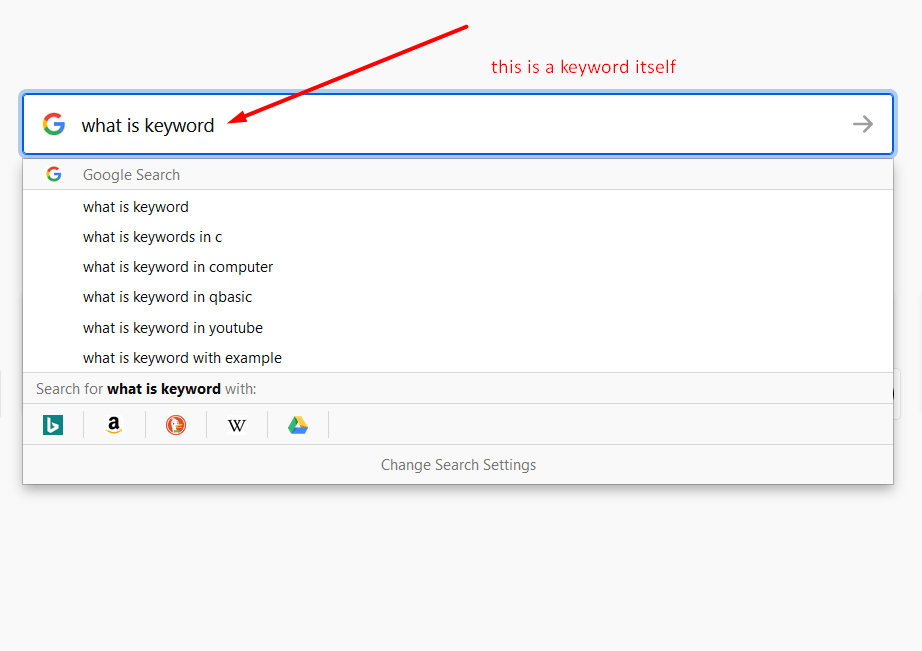
2. Where are the keywords used?
Whenever you are writing text content for anything, may it be for product description or website homepage or blog, you can use keywords. Not just this, you can use keywords even in your photo captions and alt text. Simply understand, keywords can be used in any text-oriented content.
3. Do I need to use the keyword in my content?
It depends on your goal. If you are writing for fun and aren’t looking to target substantial traffic, you don’t need to worry about keywords. However, if you are writing content to drive significant traffic in your site and rank on the first page of Google, using the keyword is a must. Not just using, proper using and optimization of the keyword is a must.
4. Where can I find suitable keywords?
There are many free and paid tools like Ubersuggest, SEMrush, Ahref, etc., where you can smoothly perform keyword research. Or you can simply type your words in the google search bar, and Google will automatically suggest your keywords. Also, you can find the keywords at the bottom of the search result page.
5. Do I need to use the keyword research tools every time? Aren’t there fast and free techniques to find keywords?
Loggin into the keyword searching tools might become tiring mostly when you do not intend to do vigorous research. So, there are few handy extensions for chrome, firefox, Microsoft edge, etc. which immediately show you everything about the keyword. E.g., keyword everywhere, Ubersuggest chrome extension, etc.
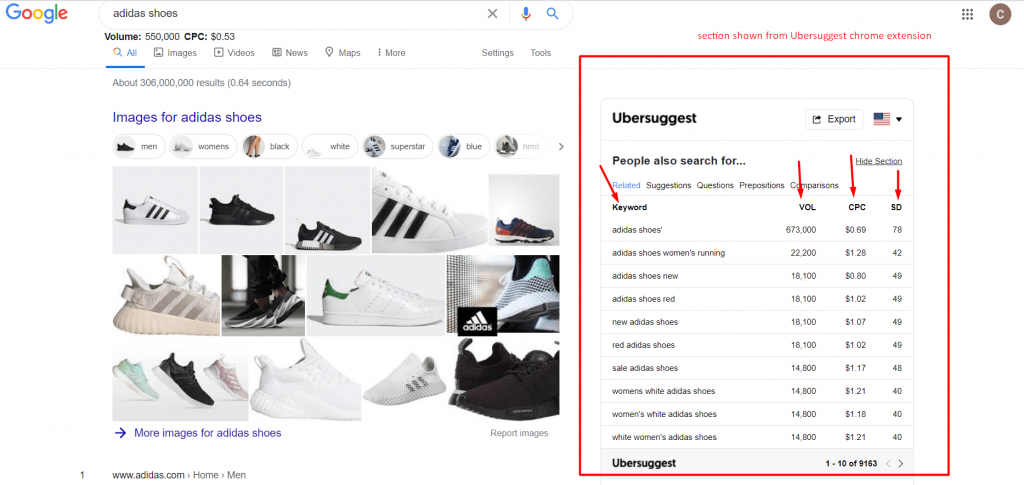

6. The keyword research tool is showing many terminologies related to the keyword. Do they matter?
Of course, they do. You must keep an eye on each of these terms and wisely make decisions while selecting the keywords. I will have them explained in simple words for you.
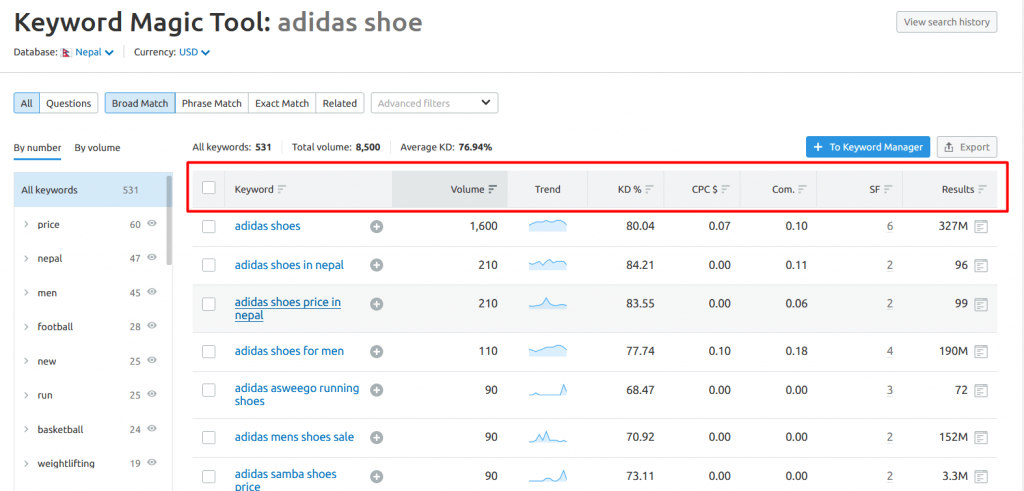
a. Keyword score:
The higher is the demand for the keyword, the higher will be the keyword score. Higher is the keyword score, higher will be the demand, and faster will be the potential of ranking. Here, demand means, more people are searching in Google typing the same keyword.
b. Search Volume/ Monthly search:
This is the average monthly search of the given the word for the past 12 months. Don’t confuse it as the per month search volume. It’s just an average calculation of the past 12 months, plus it is not the exact data but a rough estimation.
c. CPC:
It is about how much you would pay for a page 1 click in Adwords for the keyword. It is estimated data by Google.
d. Competition:
It is a relative term since it depends on how many websites are actively optimizing for this keyword.
e. Rank:
It depends on the relevant geographical market. It defines where your site is ranking for the given keyword. If not listed, understand your level above 100, and you need further optimizing.
f. Difficulty score:
It determines how difficult it is to rank for a particular keyword.
7. There are so many keywords, are we going to use all of them in our content?
Depends! It depends on the nature of the keywords. Not all the keywords match the context of your content. After keyword research, you need to perform keyword filtering to select the perfect keywords for you and separate focusing keyword and supporting keyword. After it, determine how many times are you going to use those keywords in your text. Usually, don’t go being four times else you will end up keyword stuffing. And you don’t necessarily need to use all keywords, use most of the supporting keywords as much as possible but keep in mind to still optimize the text for a single primary keyword.
8. How do I prioritize my keywords in my content?
If you have a new website, it’s hard for you to rank for a short-tail keyword. So, I will suggest you to target longtail keywords. After your website starts getting sufficient traffic and high DA, PA, you can go for short-tail keywords too.
9. What are the long-tail and short-tail keywords?
Don’t overthink. They are just classified base on the number of words. If there are many words in the search phrase, it is a longtail keyword. If the search phrase has one or two words, it is a short tail keyword. However, digging a little deeper, we can understand the difference in more detail. Longtail keywords are more descriptive and detailed than short-tail keywords. Let me clarify this with a quick example. If you search “buy shoes” on google, it is a short tail keyword. But if you type “Buy Adidas Shoe for men” on Goggle, it is a longtail keyword. The later one more describes the brand and gender explicitly and than the earlier one.
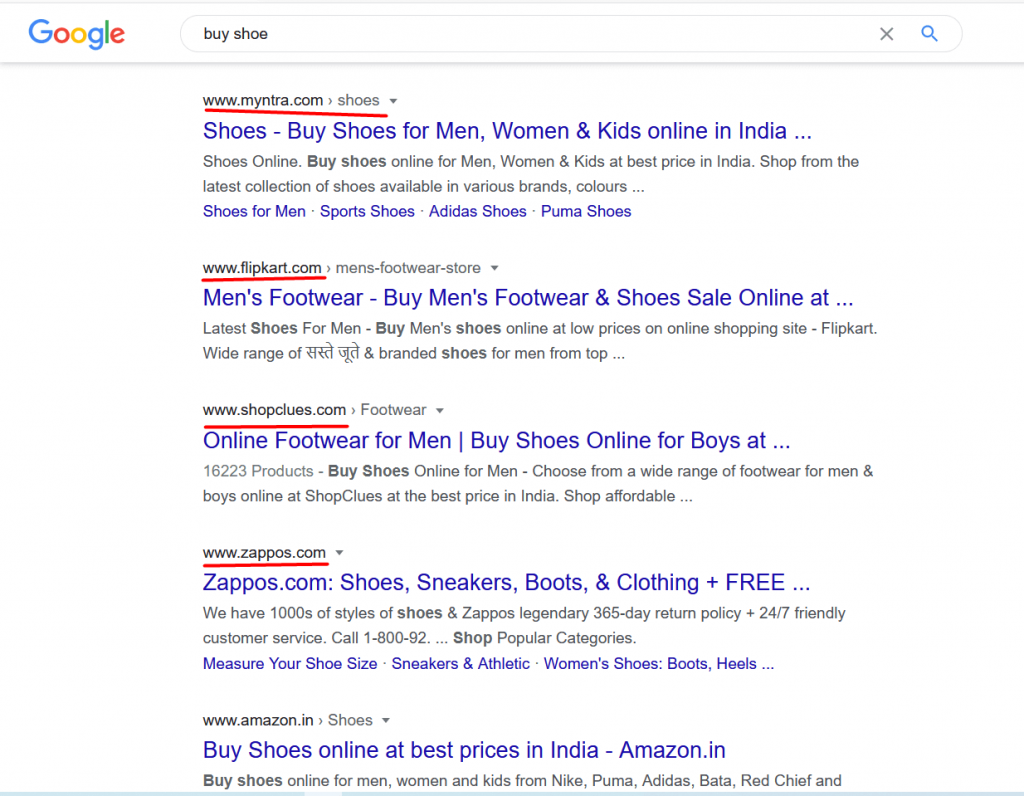

10. I heard there are many kinds of keyword, what are they?
You don’t need to worry much about this part. Many people seem to classify the keywords on their own. Just remember there are primary/focusing keywords that you are targeting using which you are planning to optimize the whole page. Another is supporting keyword, which helps to build the content around the primary keyword.
11. What is keyword intent?
Every user in the Google types in the search bar with a particular intention or intent. So, how do you know if a user is trying to buy something or simply trying to get information?
Let’s take an example. Michel typed “buy Adidas shoe,” and Richard typed, “Is Adidas shoe stronger?”. Who do you think is trying to buy the shoe? Of course Michel, right? How do you know? From the phrases, he types in Google. So, this is it. The keyword intents are simply nothing but the intention of the keywords. Based on the purpose, they are divided into “ informational keyword, commercial keyword, navigational and transactional keywords.”

